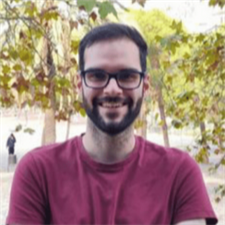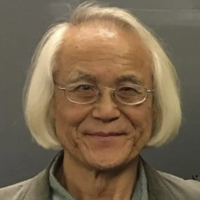events
[VIDEO AVAILABLE] Severo Ochoa Seminar - "Data-Driven Computational Mechanics for Improving Acute Ischemic Stroke Treatment", by Miquel Aguirre
ABSTRACT
Stroke is the second cause of death and major cause of disability worldwide. The most prevalent type of stroke is Acute Ischemic Stroke (AIS), which occurs when a thrombus blocks a neck or intracranial artery. This blockage impairs perfusion to a portion of the brain causing ischemia, which, if not treated rapidly, leads to tissue infarction. With the slogan “time is brain”, the healthcare agencies emphasize the urgency in AIS treatment. Ideally, the blocked brain arteries need to be recanalized within 6 hours after the onset of the first symptoms.
If not treated, 80% of AIS patients are known to die or to become functionally disabled within 90 days from the onset of the symptoms. Nowadays, treatment of AIS has greatly improved thanks to endovascular thrombectomy (EVT), a minimally invasive surgery that consists in deploying a medical device (stent retriever) able to trap and quickly remove the clot in order to restore brain perfusion. Yet, still a significant part of AIS patients do not fully recover after EVT due to two principal reasons: 1) delays in the treatment pipeline and 2) suboptimal surgical planning in EVT due to the challenging time frame of this medical condition. This presentation will focus on two on-going developments aimed at improving, from one side, the treatment pipeline via a faster diagnostics and, from the other hand, providing at decision support tool for better surgical planning in EVT.
SPEAKER CV
 Dr. Miquel Aguirre is currently an Assistant Professor and María Zambrano research fellow at Laboratori de Càlcul Numèric (LaCàN) of Universitat Politècnica de Catalunya and CIMNE. His research focus on the use of computational mechanics and machine learning techniques for diagnostics and surgical planning in cardiovascular medicine. He holds a PhD in computational mechanics from Swansea University (2014), carried out under the supervision of Prof. Javier Bonet and Prof. Antonio J. Gil. Previous to his current appointment, he worked 2.5 years at the department of Vascular Surgery, University of Michigan (USA) developing the open-source software CRIMSON for blood flow modelling, and 4 years at the École des Mines de Saint Étienne (France), in a joint research lab with the French National Institute of Health and Medical Research (INSERM), where he specialized in modelling endovascular devices and real-time techniques for surgical planning. He is currently PI of a 3-year project, MECA-ICTUS*, which will focus on the development of interpretable decision support systems for acute ischemic stroke treatment.
Dr. Miquel Aguirre is currently an Assistant Professor and María Zambrano research fellow at Laboratori de Càlcul Numèric (LaCàN) of Universitat Politècnica de Catalunya and CIMNE. His research focus on the use of computational mechanics and machine learning techniques for diagnostics and surgical planning in cardiovascular medicine. He holds a PhD in computational mechanics from Swansea University (2014), carried out under the supervision of Prof. Javier Bonet and Prof. Antonio J. Gil. Previous to his current appointment, he worked 2.5 years at the department of Vascular Surgery, University of Michigan (USA) developing the open-source software CRIMSON for blood flow modelling, and 4 years at the École des Mines de Saint Étienne (France), in a joint research lab with the French National Institute of Health and Medical Research (INSERM), where he specialized in modelling endovascular devices and real-time techniques for surgical planning. He is currently PI of a 3-year project, MECA-ICTUS*, which will focus on the development of interpretable decision support systems for acute ischemic stroke treatment.
*: Mecánica Computacional y Aprendizaje Automático para el apoyo en la toma de decisiones urgente en el tratamiento del Ictus Isquémico (MECA-ICTUS). Project funded by Ministerio de Ciencia e Innovación (Grant PID2022-136668OA-I00 funded by MCIN/AEI/10.13039/501100011033 and by “ERDF A way of making Europe”).




















